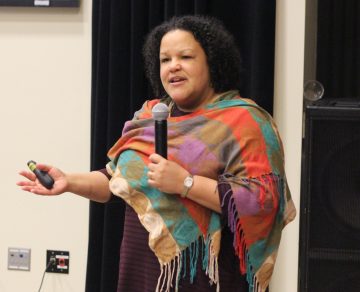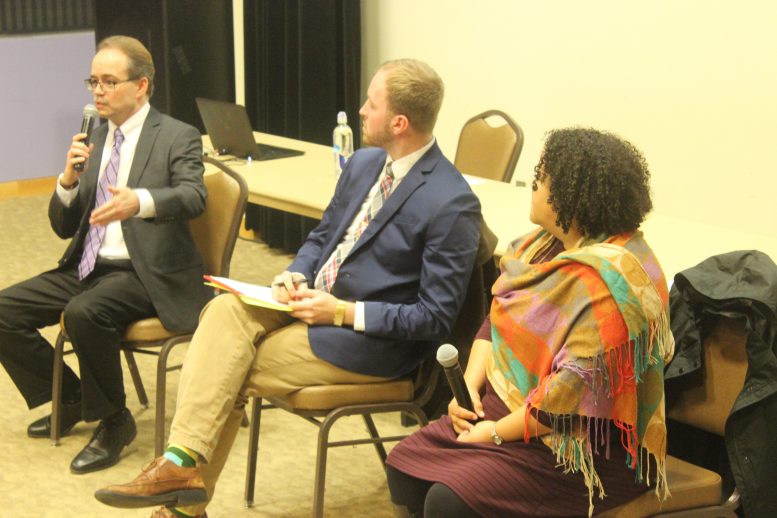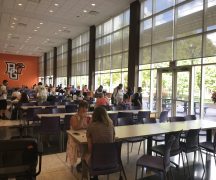By DAVID DUPONT
BG Independent News
Hate speech may be hateful but it’s still protected by the First Amendment, even on a college campus. A faculty panel last week convened at the behest of student government explored the perimeters of what’s allowed and not allowed at Bowling Green State University.
The conclusion from Patrick Pauken, Christina Lunceford, and R.G. Cravens was that the U.S. Constitution allows speech, however much some students may be disturbed by it.
Pauken, who is an attorney specializing in education law as well as professor, said that those freedoms spelled out in the Constitution involve both rights and responsibilities, for individuals and institutions.
Pauken, who admitted at several points “getting goose bumpy” when citing Constitutional principles, said if a forum is open to students, it must be open to all of BGSU’s about 300 student organizations. “We cannot discriminate against them on the basis of viewpoint.”

Christina Lunceford
“People are saying these incredibly hateful things,” Lunceford said. For the university, it’s a balancing act between its dedication to diversity and inclusion and respecting people’s free speech rights.
The university has a response team ready if a group or speaker deemed divisive and offensive shows up. That team, she said, can work with students who choose not to deal with them to avoid confrontation. Some students may feel personally attacked by such speech.
The team can also work with those who wish to counter their ideas. “If groups come with an alternative message that’s a conversation that exists,” Lunceford said. “We should be having those conversations.”
“We don’t suppress speech,” Pauken said, “we engage in it. That’s what higher education does.”
The Supreme Court has allowed great leeway for protestors, Cravens said. It has allowed the Westboro Baptist Church to protest at the funerals of slain military members. (The church claims their deaths are retribution for recognizing gay rights.)
That doesn’t mean it is a free-for-all.
Speech is subject to conditions of time, place, and manner, Pauken said.
And though the university has a free speech zone, free speech is not restricted to that area. It is suggested, Lunceford said.
A demonstration cannot disrupt the normal functions of the university, Pauken said.
Student groups who wish to host a speaker must go through the proper procedures with the administration.
Lunceford said that free speech does not protect threats or harassment, though those can fall into gray area. “So much is analyzed on a case by case basis.”
She cited a case of a black student who reported a group of white female students walking back and forth by her dorm window repeatedly singing a song that contained the “n” word. “How do we respond to something like that?” The university can look for a pattern, and try to ascertain that it is aimed at the particular student, which could constitute harassment.
The university still has a responsibility to make sure people are cared for, Lunceford said. “People can be very mean.”
The standard in judging those incidents can be whether a reasonable person would deem them as harassment, Lunceford said.
Also, a speaker cannot be advocating that someone commit an unlawful action, Cravens said.
The same goes for “fighting words,” Pauken said. Those would be utterances that by their nature inflict damage or incite immediate disturbance of the peace.
Cravens noted that some restrictions can be used to squelch free expression. In the 1950s, laws against obscenity were used to suppress gay citizens and their organizations.





